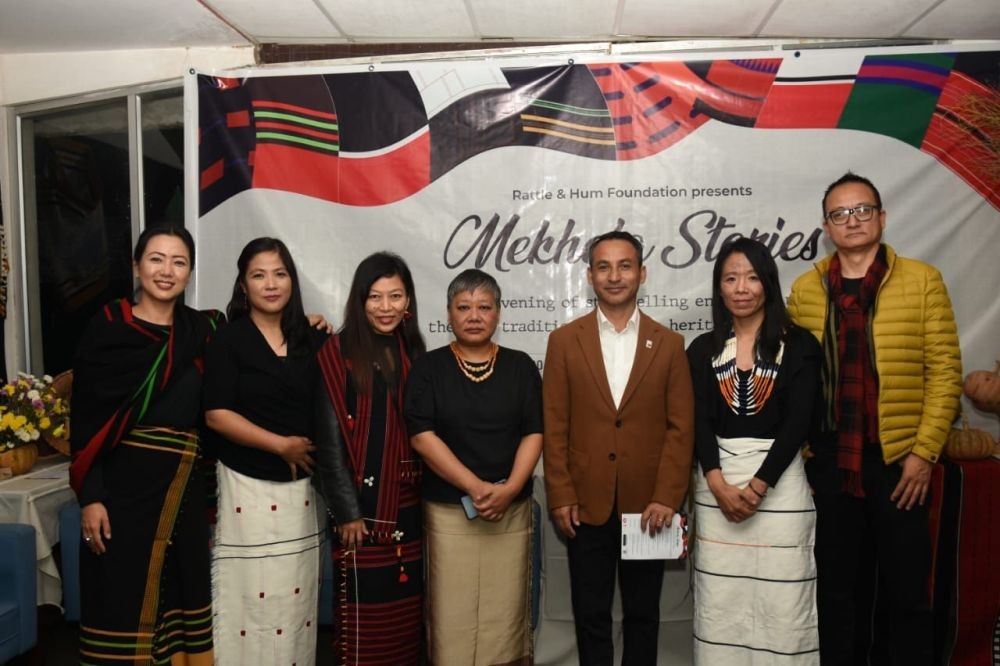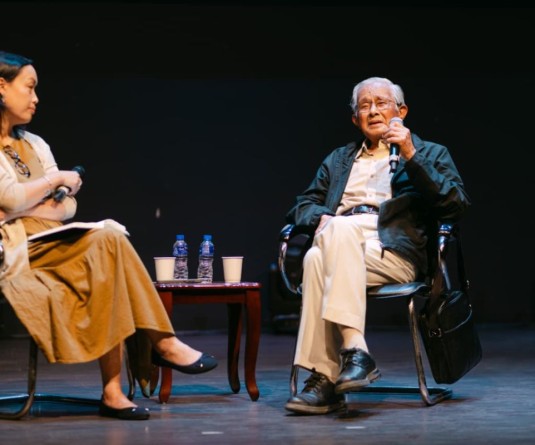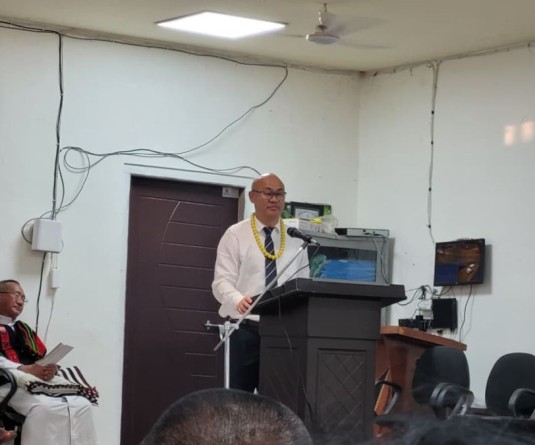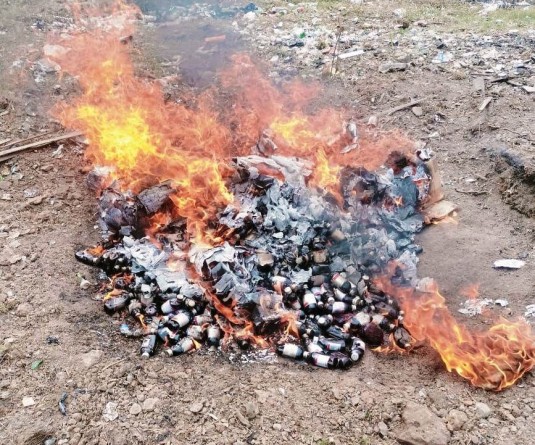Storytellers with Theja Meru, Chairman, TaFMA & Neingulie Nakhro, President of Rattle & Hum Music Society.

Morung Express News
Kohima | October 20
In what can be seen as the revival of the oral tradition of storytelling, Mekhela Stories, an evening of storytelling surrounding the rich traditional textile of Nagaland was presented by the Rattle & Hum Music Society in collaboration with PenThrill Publication House on October 19.
“It is by our cloths that we can tell ourselves apart- that we can say we are these many tribes, regions, villages, clans, classes and sexes. But that’s just half the story.” This is a statement made by Dr Theyiesinuo Keditsu, who has revolutionised the way Naga textiles are perceived through her unique storytelling approach bringing out the cultural and personal narratives associated with mekhalas and other cloths.
In this context, she also asserted that, “we would do well to remember that cloths like the Lohe testify to a tradition of oneness and hold the power to be pleasing and peaceful means to bring us together.”
Donning a “Lohe Chiecha” and a traditional “Lohe Shawl” on the evening of “Mekhela Stories”— a new and an out-of-the-box initiative of Rattle and Hum Foundation in collaboration with PenThrill Publication House, she articulated that she chose to wear them because, in her words, “they tell the story of my people, the Angamis and our age-old blood connection to the other Tenyimia peoples- Chakhesang, Mao, and Poumai, all of whom also wear this same cloth.”
The cloths, she maintained, “tell the story of our Tenyimia weavers.” And while they are deceptively simple in design, she asserted that, “it is one of the hardest to weave” and further explained that, “without elaborate patterns to hide behind, the weaver must ensure perfect and constant tension throughout the entire panel and reproduce the same in the other panels.”
“All pieces must be perfectly sized, aligned and joined together by hand stitching. The cloths tell the story of how changing milieus have brought us into contact with new goods and markets. My chiecha is woven in polyster and my shawl in acrylic wool- yarns unknown to our foremothers who spun and dyed their own cotton,” she added.
The Lohe, she further highlighted, “tells the story of a notoriously egalitarian people- who refuse to be lower or higher than anyone else” even while highlighting that, “it is a lesson in humility, in a shared commonality- one that extends to the sexes because this is a cloth both men and women can wear.”
Pointing to the Lohe shawl she was wearing, she expressed, “my Pfhe (shawl) claims this right because my son-less parents gifted it to me as affirmation that I was daughter and son to them.” “My Chiecha tells the story of my grandmother and her sister whose bitter estrangement was mended by their children’s intentional amity...” she went on to say.
‘Textiles are her stories’
Independent Researcher & Editor, Vizovono Elizabeth remarked that “our textiles have always been our cultural language and a way of communication.” And because weaving is traditionally women’s work, she said that, “Naga women have a lot to say through the cloths they weave, or those they wear.” “Textiles are her stories”, she emphasized.
Further pointing out that “we transcribe our stories through the motifs and patterns on our shawls”, she also stated that, “the colours and designs on our textiles are like a document, carrying and conveying symbolic stories and meanings.” She said that “they are like a code language and that is why, they are valuable.”
“What is unique to us and makes us different from anyone else if our identity, and this comes from our culture,” she also put across.
Earlier, Theja Meru, Chairman, Task Force for Music & Arts (TaFMA) said there is a “renaissance of colours, music, and great energy coming from young people.”
“I can only see good days ahead of us. We should be absolutely proud that we are Nagas, and our culture is the only gift we can give ourselves and the world. Let’s continue to make Nagaland proud”, he said.
President of Rattle & Hum Music Society, Neingulie Nakhro said that this is a very new space for the Society while recalling that it has been working in the area of music since 2017.
Starting with a very small act like a music concert in small segments, the Society had subsequently gone to cities and countries organising the International Handshake Concerts in 8 different countries.
During these times, he recalled, “we took our people and culture to the world and we realised that our strength lies in our culture, which is the one thing that stood out.”
Highlights of the event included storytelling on “Ezungpvui Mekhela” by Meripeni Zares, Additional State Protocol Officer, Home Department, “Ao Warrior Shawl” by Limajungla Jamir, Assistant Professor, Kohima College, Kohima and ‘Mekhela Stories’ by Dr Theyiesinuo Keditsu, Indigenous feminist, poet, academic & educator.
A word on PenThrill was delivered by Vishü Rita Krocha, Publisher, PenThrill Publication House while Khriezotoulie Chase performed “My Way” and Dr Vizovono Elizabeth chaired the event.






